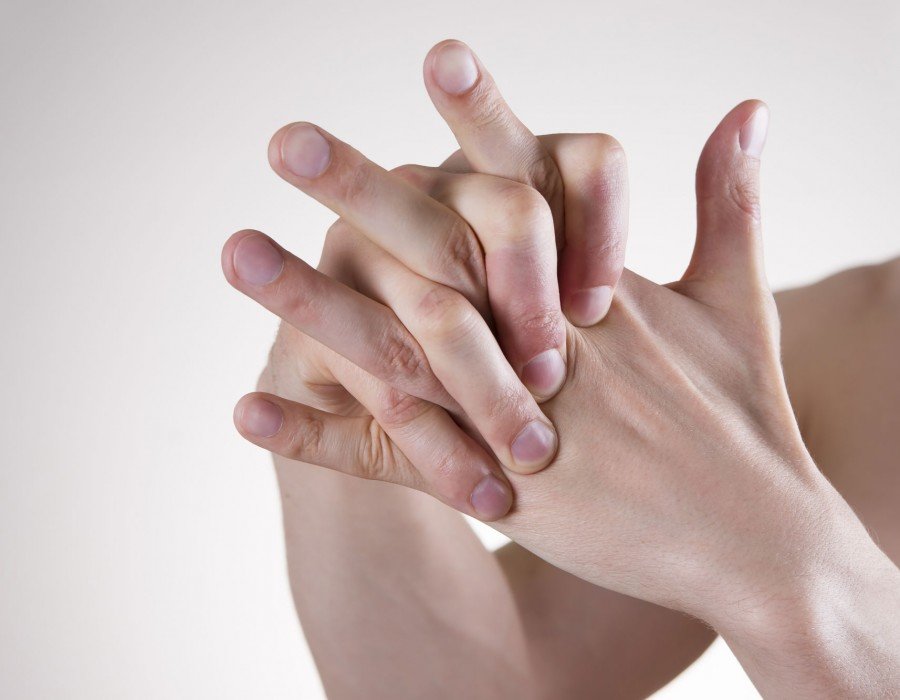Health and Wellbeing
Does Cracking Your Knuckles Cause Arthritis?

Your hands – your very own musical instrument!
A whopping 54% of us reportedly crack our knuckles. Most people do it out of habit, some do it to wind up the person next to them, but all ‘knuckle crackers’ will tell you just how satisfying it is.
One thing that we always get asked as physiotherapists – does cracking your knuckles cause arthritis? It’s a bad habit but, beyond making the person next to you grimace, is it all that bad for you?
We thought we would try and shed a little light on this topic for you.
Why our joints crack?
Our joints click and crack for many different reasons. You might purposely crack a joint because it gives you some relief or you might do it out of habit without being aware. It might even be that your joints crack from simple day to day activity – many people’s knees click when standing. The important thing to remember is that, in the absence of other symptoms, clicking and cracking is quite normal.
While there has been much discussion around the cause of cracking joints, it is not fully understood why it happens. There are a number of possible explanations:
1. Popping Air Bubbles
Each joint in the hand is surrounded by a capsule. Inside this capsule is a lubricant called synovial fluid. This fluid aids movement at a joint by allowing the bone surfaces to glide over one another smoothly.
As we use our hands and move our joints we are stretching and moving the joint capsule. This causes a change in pressure and tiny air bubbles to form. When we crack our knuckles we push the fingers into positions that stretch the joint capsule causing an increase in pressure. This increased pressure causes the air bubbles to pop!
These air bubbles will take around 20-30 minutes to reform in your joints. That’s why you might find it difficult cracking your knuckles repeatedly.
2. Cavitation
Researchers have recently suggested that it may not be bubbles in the joint that produce the sound when you crack your knuckles. Instead, they think that when we crack our knuckles, the sudden stretching of the capsule creates an air pocket (cavitation). The sound you are so familiar with then follows.
3. Tendons and Joints
The third theory is that tendons and ligament crossing a joint cause the cracking sound when they move and tighten. This happens when they ‘roll’ into place, flicking over bony outgrowths leading to a ‘pop’. The best example of this is when you have been sitting for a while and then stand suddenly but it may also apply to your knuckles.
Does cracking your knuckles cause arthritis?
As it stands, there is no research showing that cracking knuckles regularly leads to arthritis.
In fact, a researcher cracked the knuckles on his left hand at least twice a day for 50 years, leaving his right hand well alone. That’s a staggering 36,500 cracks! After 50 years, he assessed the joints and found no evidence of arthritis in either hand or any substantial difference. He concluded, there is no relationship between arthritis and cracking knuckles.
When to be Concerned
A cracking or clicking joint without any other symptoms is nothing to be concerned about. However, if you are experiencing other symptoms such as pain or pins and needles during or after cracking knuckles then it is probably time to seek some advice. A painful, cracking joint may be a sign of issues inside the joint itself.
If you notice, locking, catching or abnormal swelling in the joint, it would also be worthwhile visiting your GP or physiotherapist.
So can I keep on cracking?
Although there is no research showing a direct causal relationship between knuckle cracking and arthritis, regularly cracking knuckles may cause other issues. One study shows that cracking your knuckles regularly can cause inflammation of the joints and may lead to limitations in function – such as a weaker grip strength.
Contrary to this, occasional joint cracking has actually been shown to increase mobility. This may not be a surprise to you if you have visited a physiotherapist, osteopath or chiropractor recently and had joint manipulations as part of your treatment.
Healthy Joints
Remember! Always stay active to keep the joints moving, supple and surrounding muscles strong – this will help support your joints throughout life. Keeping your weight down will reduce pressure on your joints and help maintain the quality of the joint surfaces.
Crack away, the main concern you have is annoying the person next to you!
Article by: Adem Sogular, Chartered Physiotherapist
Another article you might like: Myths and Facts about Arthritis